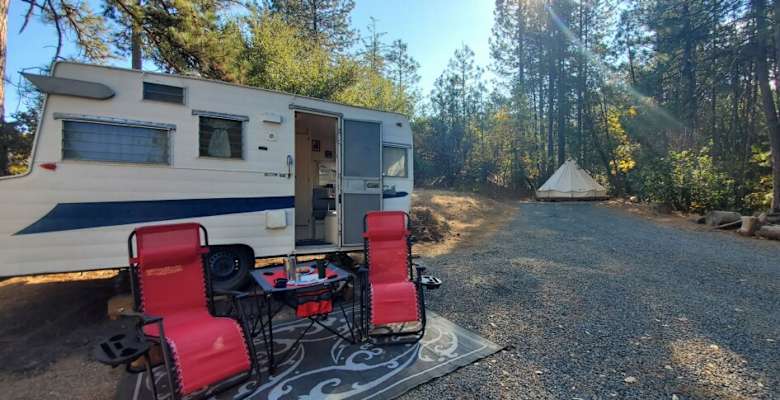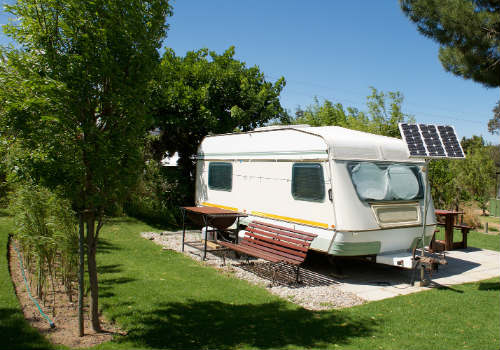
Cost: The downside for homeowners looking to add an RV garage is that you would need to build onto an existing garage or a brand new structure.Cost: When buying a home with an RV garage attached, the cost of the garage is already built in as part of the home’s overall cost.Security: Keeping your vehicle inside means the chances of damage and theft are significantly lower.Weather: Indoor vehicle storage means your RV is protected from the elements.Convenience: RV garages can be designed to fit every motorhome and trailer size, including class A, class B, and class C.However, this can be tricky for existing properties. Especially if you’re building a custom home, this is a great option. Security: Any time you leave your RV out in the open, it’s at risk of vandalism or theft.Ĭonstructing a specific RV garage is a popular choice among recreational vehicle owners.Weather: Without a roof, your vehicle will be exposed to the elements.Be sure to check with your neighborhood HOA before using your yard as your RV parking space.
 HOA Restrictions: Many homeowners associations have rules in place that don’t allow vehicles to be kept in yards. Cost: If you plan on building a parking pad, grading your yard, or adding a carport to accommodate your RV, the associated costs will increase immensely. You won’t have to worry about picking it up or dropping it off at a different location. Convenience: Take your RV or trailer whenever you need it. Cost: If the plan is to simply park the RV in your yard, this option wouldn’t cost you anything. Unfortunately, there are several downsides to utilizing your home’s yard to store your recreational vehicle. Keeping a camper, RV, or trailer in your backyard can be a convenient option if you have enough space. In addition, you may not have extra room inside your garage for home storage, an overflow fridge, an overflow freezer, and lawn equipment. Space: If you have a small garage and more than one car, one of your vehicles will have to sit outside. Weather: Environmental damage isn’t an issue when your vehicle is stored in an enclosed space. Security: By keeping your RV in your garage, you greatly reduce the possibility of vandalism or theft. Cost: If your home has a garage large enough, you don’t have to pay to store your RV. Keep in mind not every garage can fit a recreational vehicle, especially if it’s a taller RV. This is the perfect option for most class B and C motorhomes, which can be anywhere from 22 feet to 35 feet in length. With a two-car garage, you may have space available to be used for storage for RVs, campers, or trailers.
HOA Restrictions: Many homeowners associations have rules in place that don’t allow vehicles to be kept in yards. Cost: If you plan on building a parking pad, grading your yard, or adding a carport to accommodate your RV, the associated costs will increase immensely. You won’t have to worry about picking it up or dropping it off at a different location. Convenience: Take your RV or trailer whenever you need it. Cost: If the plan is to simply park the RV in your yard, this option wouldn’t cost you anything. Unfortunately, there are several downsides to utilizing your home’s yard to store your recreational vehicle. Keeping a camper, RV, or trailer in your backyard can be a convenient option if you have enough space. In addition, you may not have extra room inside your garage for home storage, an overflow fridge, an overflow freezer, and lawn equipment. Space: If you have a small garage and more than one car, one of your vehicles will have to sit outside. Weather: Environmental damage isn’t an issue when your vehicle is stored in an enclosed space. Security: By keeping your RV in your garage, you greatly reduce the possibility of vandalism or theft. Cost: If your home has a garage large enough, you don’t have to pay to store your RV. Keep in mind not every garage can fit a recreational vehicle, especially if it’s a taller RV. This is the perfect option for most class B and C motorhomes, which can be anywhere from 22 feet to 35 feet in length. With a two-car garage, you may have space available to be used for storage for RVs, campers, or trailers.  Security: Your RV is more likely to get vandalized or stolen out in the open. Space: If you own more than one vehicle, parking spaces are limited in your own driveway. Weather: Keeping your RV or trailer in your driveway means it’s more susceptible to damage caused by the sun, wind, rain, and snow. This could result in expensive fines or towing. HOA Restrictions: Depending on where you live, your homeowners association may have rules against keeping an RV, trailer, or camper in your driveway. Cost: It’s your driveway, which means it doesn’t cost you anything to store here!. Convenience: No waiting, picking up, or dropping off your RV is necessary. But using your driveway as storage for an RV can create other problems.
Security: Your RV is more likely to get vandalized or stolen out in the open. Space: If you own more than one vehicle, parking spaces are limited in your own driveway. Weather: Keeping your RV or trailer in your driveway means it’s more susceptible to damage caused by the sun, wind, rain, and snow. This could result in expensive fines or towing. HOA Restrictions: Depending on where you live, your homeowners association may have rules against keeping an RV, trailer, or camper in your driveway. Cost: It’s your driveway, which means it doesn’t cost you anything to store here!. Convenience: No waiting, picking up, or dropping off your RV is necessary. But using your driveway as storage for an RV can create other problems. 
The average driveway is large enough for at least one car.

DrivewayĪn easy place to store an RV or trailer at home is in your driveway. However, storing at home comes with challenges. Keeping a recreational vehicle at home is common for many RV owners, as most trailers, pop-up campers, and small motorhomes can fit in a garage or driveway.








 0 kommentar(er)
0 kommentar(er)
